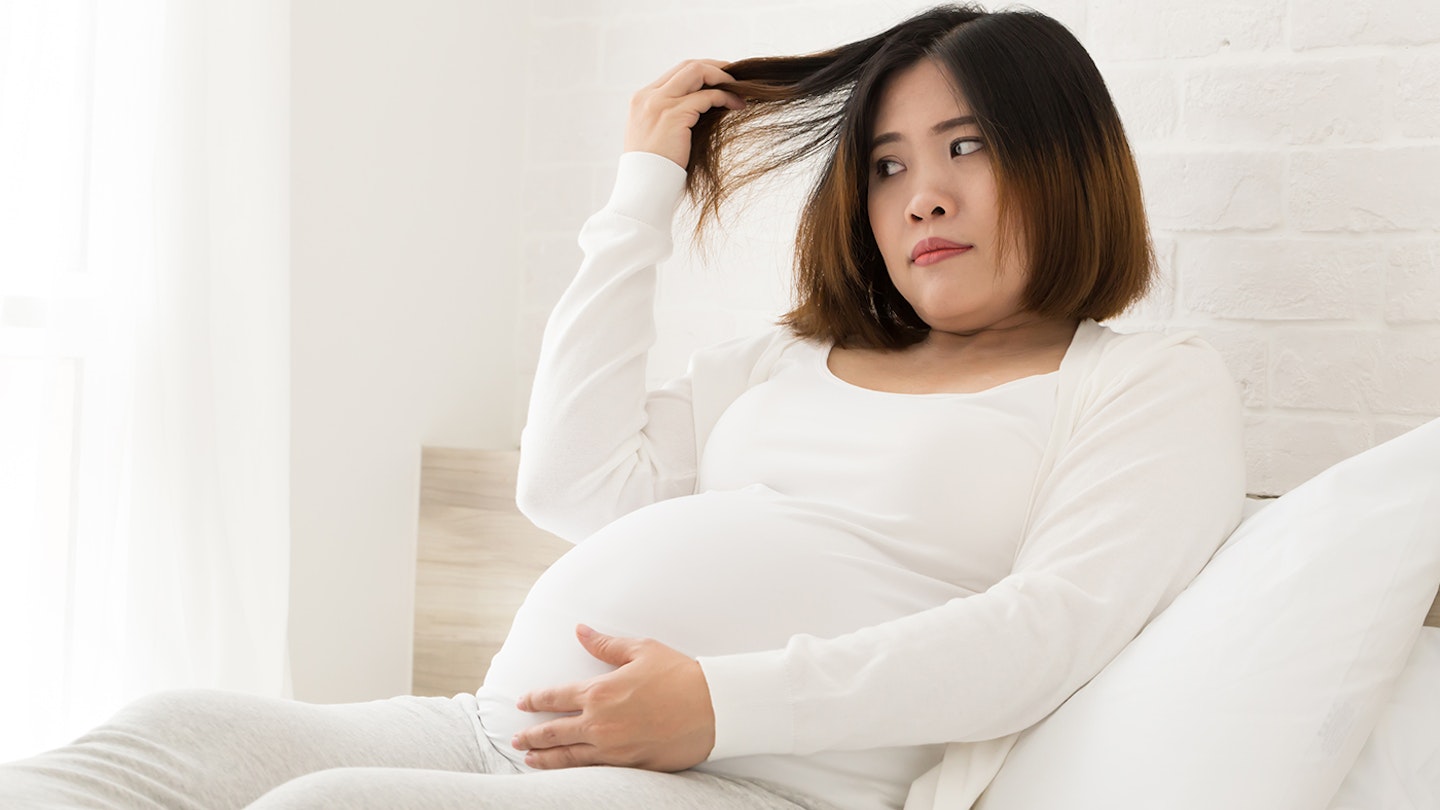Hair loss in pregnancy isn’t common, in fact a lot of women find their hair to be thicker and fuller during this exciting time. Women are more likely to experience hair loss after pregnancy, but nevertheless, hair loss during pregnancy can happen.
We spoke to Obstetrics & Gynaecology Doctor and mum-of-two, Dr Brooke Vandermolen from the Royal College of Obstetricians and Gynaecologists, to find the causes, why this happens and how to treat it.
Can pregnancy cause hair loss?
Changes to skin and hair are common during and after pregnancy due to the hormonal changes that take place within the body. It's common to experience hair loss after giving birth, in the postpartum period, and often women experience hair growth during pregnancy. Following childbirth, many people experience a temporary increase in hair fall 3-4 months after giving birth. Some people may see more hair on their pillow, or in the shower.
What are the causes of hair loss during pregnancy?
Outside of pregnancy, in healthy hair growth, hair grows in different stages at any one time, resulting in a roughly consistent number of hairs on the head and hairs falling out. It is normal to shed around 30-150 hairs per day.
During pregnancy and postpartum, big shifts in certain hormone levels have an effect on hair follicle life cycles.
In pregnancy, oestrogen causes hair to stay in the anagen (the growth phase) for longer. Hair may look thicker or fuller. This means postpartum, more follicles enter the shedding phases at once leading to an apparent loss of hair. The stress of delivery and sleep deprivation also contribute and you will usually notice this around 3-6 months after birth.
Hair loss during pregnancy could be stress-related, but may also be a sign of a vitamin deficiency or underlying health condition.
How can you prevent hair loss during pregnancy?
Try not to panic! It is a natural phenomenon that should be self-limiting. The hairs that are shedding have already gone through a stage where their blood supply has been cut off (catagen), so there is no way that they could have been kept on your head.
Continue to eat a healthy balanced diet with adequate iron, protein and fruit and vegetables to support hair growth and general postpartum recovery. Your GP may check your iron and thyroid function if there are any concerns. Anti-hair loss shampoos and scalp treatments are not routinely recommended.
When should I see a doctor? How can you treat hair loss during pregnancy?
If hair loss persists for over 6 months, further investigations or treatment may be required. Dermatologists may recommend treatments like applying topical minoxidil to the scalp to support follicle growth.
If you are pregnant and are concerned about hair loss, speak to your doctor or healthcare professional.
Meet the expert
Dr Brooke Vandermolen is a practising Obstetrics & Gynaecology registrar doctor, who has worked and trained in a variety of London NHS hospitals. Brooke is experienced at dealing with all aspects of women’s health and pregnancy. Brooke created her educational platform “The OBGYN mum” via which she shares insights and tips around pregnancy, fertility, menopause and more through social media and blog posts. She is an experienced medical writer, and creates digital content for The Royal College of Obstetricians and Gynaecologists (RCOG) and NHS England to translate trending topics into evidence-based, relatable bite-sized media.
